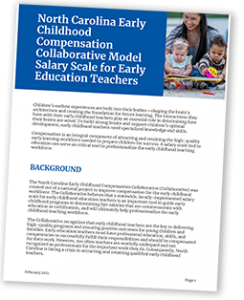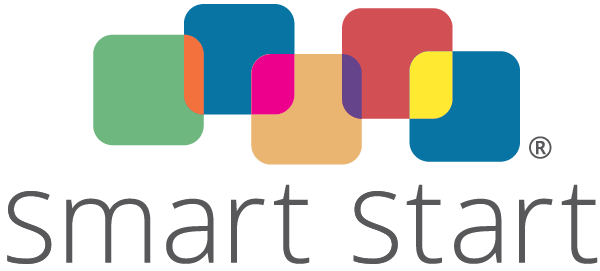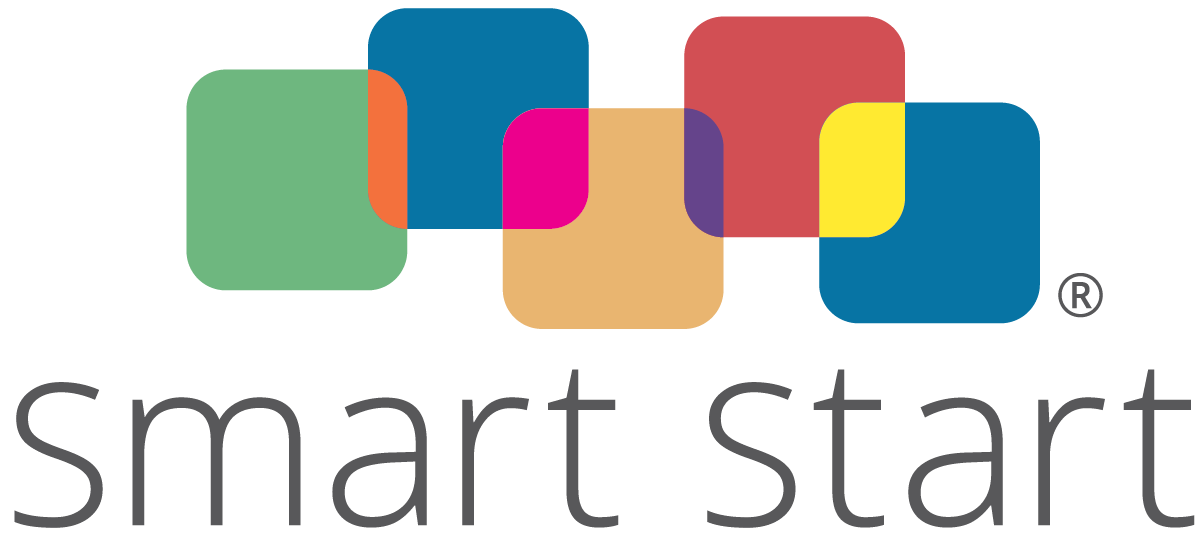Model Salary Scale for Early Education Teachers
by Amy Cubbage, President of The North Carolina Partnership for Children (NCPC)

Too many of the professionals who care for and educate our youngest children receive wages that aren’t nearly enough to make ends meet. Many work without access to health insurance or other benefits. Child care centers are struggling to find and retain qualified teachers and having to make tough decisions of their own.
North Carolina child care teachers make an average of $12 per hour. Child care teachers are seven times more likely to live in poverty than public school teachers.
The pandemic didn’t start this crisis, but it shone a bright light on the injustice of treating child care teachers as essential workers while not paying them living wages nor recognizing them as professionals.
The Smart Start network has engaged in a number of policies to support the early care and education workforce, and Smart Start local partnerships have developed their own innovative approaches in their own communities, including the Pathways to Accreditation program at the Children’s Council of Watauga. The Smart Start network implements the WAGE$ program (PDF), which provides education-based supplements to teachers across the state. Last year nearly 4,000 teachers received those supplements, and we hope to reach even more in the future.
We know that there isn’t a single solution to the challenges faced by the early care and education workforce. Supports provided by the Division of Child Development and Early Education (DCDEE) during the pandemic have helped, and the upcoming Stabilization Grants are another opportunity for progress.
 Today, we have another tool in the toolbox to increase the compensation of early care and education professionals. The North Carolina Early Childhood Compensation Collaborative Model Salary Scale for Early Education Teachers (PDF) is a resource to be used by employers, employees, and policymakers to move toward fair and just compensation. The education-based scale represents a published, transparent compensation and career pathway and offers fair access to mobility.
Today, we have another tool in the toolbox to increase the compensation of early care and education professionals. The North Carolina Early Childhood Compensation Collaborative Model Salary Scale for Early Education Teachers (PDF) is a resource to be used by employers, employees, and policymakers to move toward fair and just compensation. The education-based scale represents a published, transparent compensation and career pathway and offers fair access to mobility.
The Scale
The model salary scale was developed by a coalition of organizations and agencies across the state and is grounded in key principles, including:
- Wage parity with public school teachers, not compensation parity
- 100% wage parity for teachers with B-K license as required by school system
- Smaller percentage for degree without license
- Voluntary use by ECE programs, serves as a tool
- Equity between levels of wages, reward for education
- Minimum of $15/hr. on the scale for an AAS/AA degree

The renewed focus on the importance of child care for our economic recovery has fueled interest and opportunity for addressing the needs of the early care and education workforce. DCDEE’s Stabilization Grants, due to be released in October, will include the model salary scale as a resource for decision-making. A recent webinar (view the slides as a PDF) introduced the model salary scale, and more technical assistance is planned to support its implementation.
We know that early care and education professionals provide their expertise, time, and energy in supporting children. Each day they are shaping our state’s future. It is time we provide the comprehensive supports needed to increase compensation, improve benefits, and strengthen the workforce pipeline.


